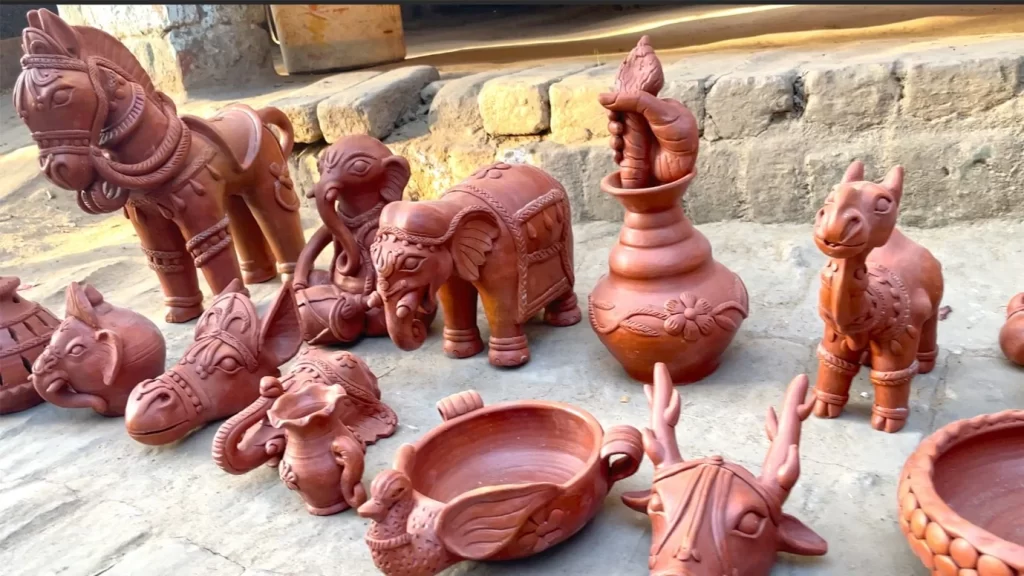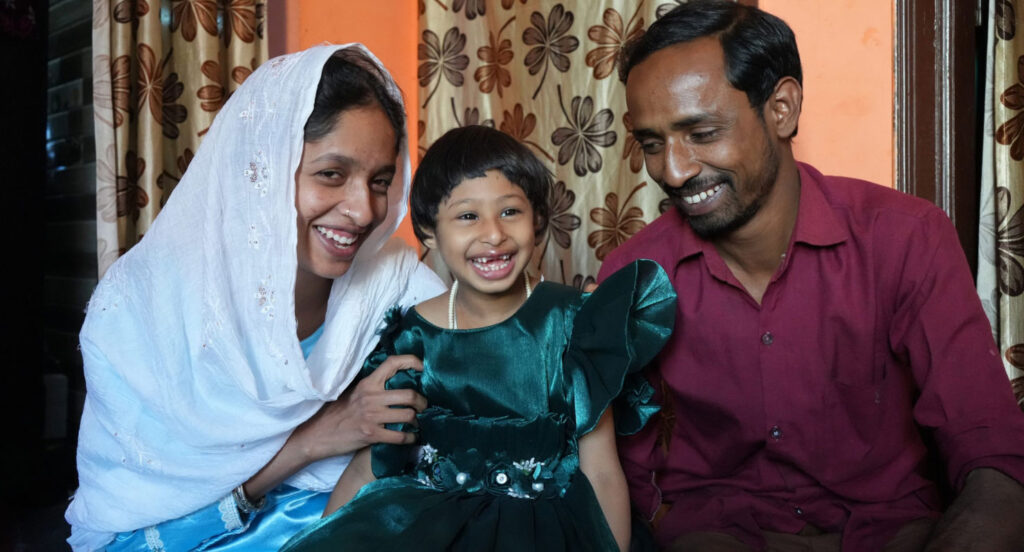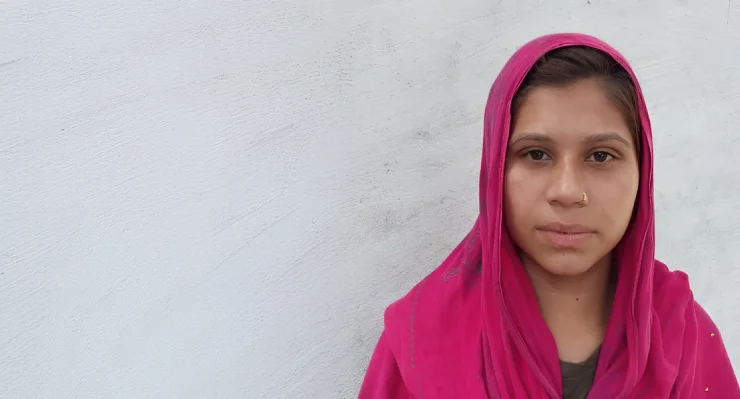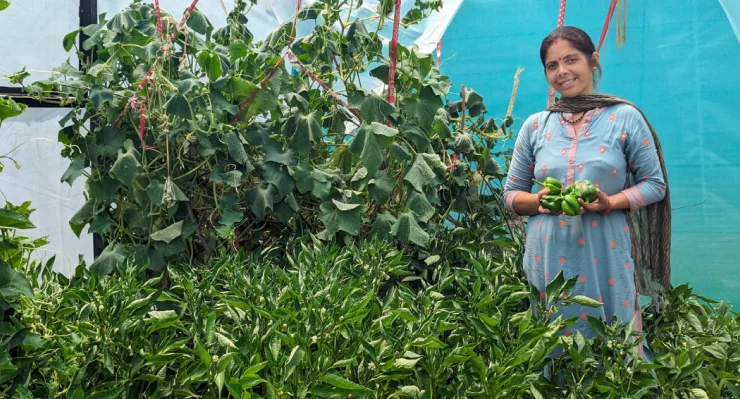Ramesh’s face lits up with pride as he displays his lovely handmade terracotta handicrafts at his home in Gorakhpur, Uttar Pradesh. Today, Ramesh leads a contended life, just as he once dreamed.
Life wasn’t always smooth sailing, though. An illness in his childhood had left his legs paralyzed. Growing up, Ramesh had to face social taboos and often experienced exclusion from his peers. This made him shy and less outgoing.
Because the schools were too far and difficult to reach, he was forced to leave his studies behind and join his family in traditional wheat and paddy farming. However, their small plot provided only for their most basic needs and sometimes it was difficult to make ends meet.
Initially, Ramesh was uncertain when approached by our Swawlamban program team, but later gained confidence through their consistent support and overcame his hesitation. Ramesh began attending the program meetings and was heartened by the welcoming atmosphere in the Nav Jeevan Divyand Jan Seva Samiti (NDSS), an organization of persons with disabilities established through our project. Through the program, he received various trainings on developing skills, improving interpersonal abilities, and about his rights as a person with disabilities.
Among the various livelihood training opportunities of the Swawlamban program, the terracotta sessions captivated Ramesh. He joined the classes, refining his skills in working with clay and creating beautiful objects. Through consistent practice and group marketing, he established a business from scratch. Soon, Ramesh’s craftsmanship transformed into a sustainable source of income for him and his family.

Besides improving substantially his financial situation, Ramesh discovered a newfound sense of belonging and self-confidence. He was also nominated for the role of Master Trainer and received advanced-level training. Today, he’s leading the terracotta artisans group, which includes eight people with disabilities, and together they’re working together to create and sell terracotta products. He has also taken over as the president of a local self-help group linked with the National Rural Livelihood Mission. Additionally, Ramesh is also an active member of the Swabhiman Cottage Industries Producer Company Limited, an enterprise engaged in the production of jute and handicrafts products by rural artisans with and without disabilities.
“Apart from the money, I gained respect in the community and became the leader of the Terracotta Artisans Group and the President of the Gulab Self-Help Group.”
Encouraged by his success, Ramesh underwent an organic farming training program and converted his paddy fields to grow vegetables. His hard work paid off, offering an additional reliable income stream.
Thanks to growing earnings, Ramesh’s life has transformed. He can now ensure his daughter gets a quality education at a better school, he purchased a motorized tricycle, and even secured a lease on a plot of land to source clay for his terracotta products throughout the year.
Ramesh looks back at how far he has come and is grateful for the support he has received. From uncertainty about his future to now steering a successful business, he has truly become the architect of his destiny.
Note: The Swawlamban project is primarily focused on empowering persons with disabilities and people from marginalized communities across 40 remote villages in eastern Uttar Pradesh. Through various activities, the project aims at providing sustainable income and livelihood opportunities, improving access to food security, inclusive healthcare, and education, promote gender equality and inclusion of persons with disabilities, and taking action to combat the effects of climate change.



